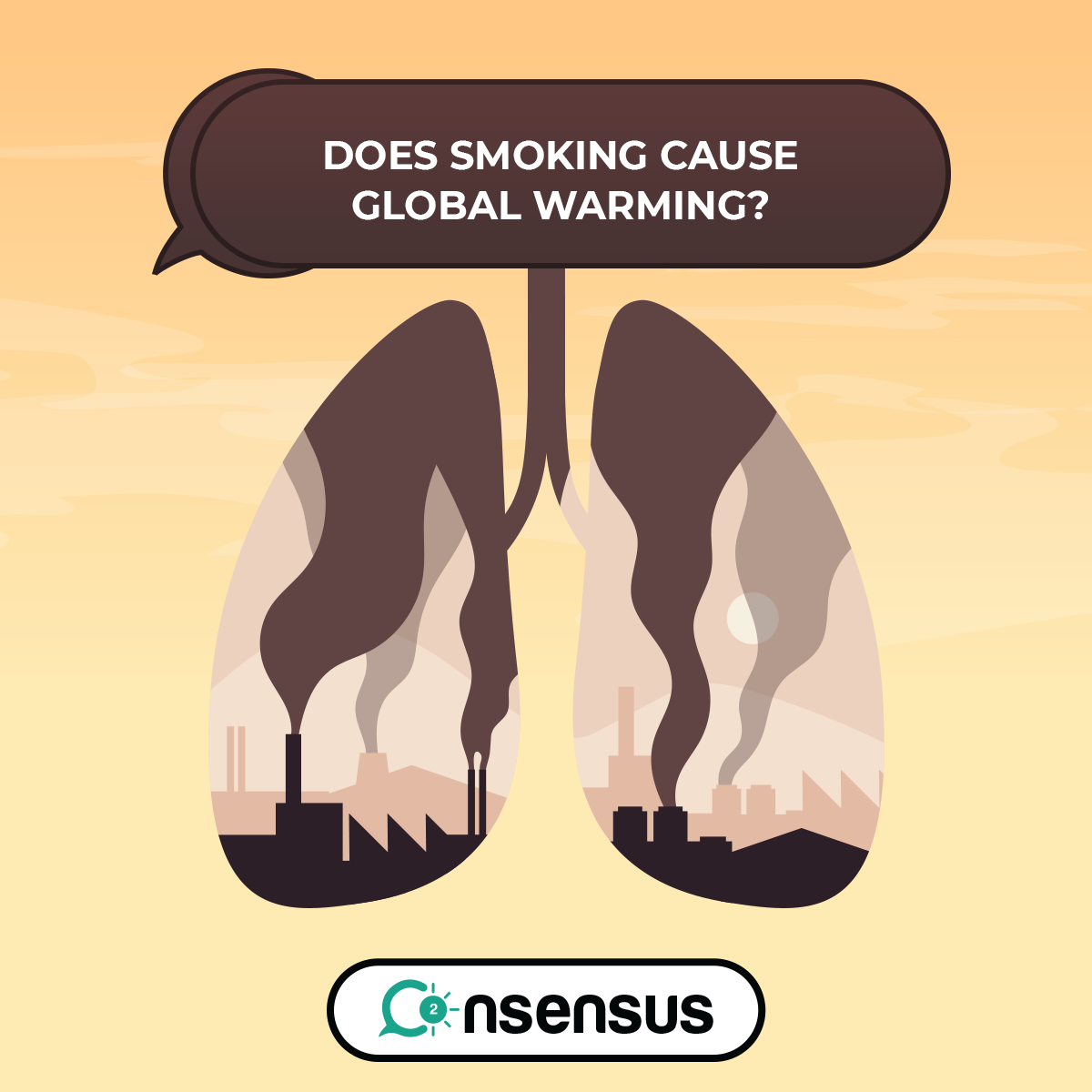Smoking and global warming might not appear to have a direct relation. However, if you look real closely you will find out that although, the smoke produced by a bunch of chain smokers might not produce sufficient amounts of carbon dioxide and pollutants to contribute towards global warming. In fact, smoking is thought to cause a negligible effect on the climate.
However, a number of studies conducted over the years have refuted this claim. In fact, according to a study, the growth of tobacco plant requires the utilization of energy and resources, which puts a great deal of pressure on the environment.
Smoking and global warming are interlinked due to the consumption of energy and fuel, water usage, soil depletion, and acidification which occurs from tobacco cultivation. Producing green tobacco to be used in the dry tobacco for the cigarette industry contributes to nearly 84 Mt CO2 emissions, which is equivalent to around 0.2% of the global C02 emissions.
There is also an ethical consideration associated with using the finite resources of water, land, pesticides, and labour, which could be used more efficiently for food production in the cigarette industry. In comparison to other crops, tobacco requires more inputs and produces much lower yields. One example given by the study is that one hectare of land in Zimbabwe has the potential to produce nineteen times more potatoes than the tobacco which is currently cultivated.
Tobacco plant is considered to be very demanding, absorbing six times as much potassium from the soil as the majority of crops. Farmers in some undeveloped nations grow tobacco until the soil is useless and then clear-cut forests for fresh land. In such areas, up to 600 million trees are felled and burned annually to dry and cure tobacco leaves. Moreover, it is estimated that around four miles of paper an hour is used to wrap and package cigarettes. Apart from the pollution generated from manufacturing cigarettes, by cutting down this many trees, we are introducing at least 22 million net tons of CO2 in the atmosphere, which is roughly equivalent to burning about 2.8 billion gallons of gasoline.
The amount of the nutrient in the soil drains six times faster than usual, making the soil goes unsupportive for future replantation of tobacco in just several harvests. By that time, the soil becomes useless to the tobacco farmers, unless being processed. Therefore, the processing activity to ‘refresh’ the soil requires a lot of effort, time, and money. That’s why some tobacco farmers, especially those who live in undeveloped nations, simply seek out a new and fresh field to plant more tobacco. Some of them ignorantly just clear-cut forests to get the fresh field.
Moreover, the drying and curing process of tobacco for making cigarettes also require the help of fire, made out of mainly woods. Data recorded that 600 million of trees are cut and burned annually in the process of making ‘ripe’ tobacco for cigarettes.
Unfortunately, the damage isn’t confined to the atmosphere. According to an estimate, tobacco companies produce 5.5 trillion cigarettes every year. Of those, 4.5 trillion have non-biodegradable filters that are thrown away, representing as many as one out of every five pieces of litter. Moreover, cigarette butts require months or even years to break down, releasing almost 600 chemicals into the soil.
The butts are made of synthetic fiber named cellulose acetate that requires more than a decade to decompose. Those cigarette buds contain chemicals which are harmful for the environment, and as they are tossed away, instead of biodegrading they release those chemicals to the soil, water, and even the air.
There are many harmful toxins that cigarette butts potentially release in this process, such as nicotine, cyanide, acetone, and arsenic, even heavy metals such as barium, chromium, and lead. Researchers have scientifically proven it by conducting a study in 2011.
A single cigarette butt was put in a controlled environment to show how it would affect the organisms living in the controlled environment. They found out that leachate from the single cigarette butt could kill half the exposed fish. Imagine those creatures that not only ‘being exposed’ to it, but mistakenly swallow it. The toxins will be released inside their bodies and kill them slowly.
Almost 90% of global tobacco production takes place in developing countries. Nine of the top ten tobacco-producing companies are developing, and four are low-income-food-deficit countries (LIFDCs). These countries include India, Zimbabwe, Pakistan, and Malawi. However, developed countries consume the majority of these cigarettes.
The tobacco is then wrapped in cigarette papers for the smokers’ convenient. And the amount of paper spent for making cigarettes is unbelievable. Data recorded that for just wrapping cigarettes, four miles of paper is consumed hourly.
The paper of course came from trees, and losing trees means more carbon dioxide is released freely to the atmosphere. In fact, those trees could have absorbed 22 million net tons of carbon dioxide in the atmosphere.
In a nutshell, the smoke itself may not be that harmful for the nature. But the whole process of making cigarette and the waste it produces are the ones that will harm the earth, increase carbon footprint and contribute drastically to global warming.
